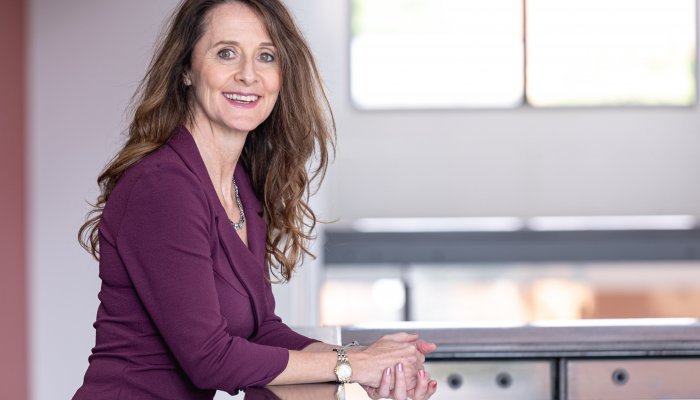Bribery and self-enrichment through corrupt relationships and favouritism, coupled with a long history of self-interested decisions, have left many South Africans in a state of shock and with a deep sense of despair. Recent reports have shown that South Africa has lost as much as R1.5 trillion in the last five years alone. A country rich in potential is being brought to its knees by decision-makers who close their eyes to the plight of the poor, the elderly and the sick. One of the worst examples of this moral blindness must be the misappropriation of billions of rands intended to safeguard South Africans from the Covid-19 pandemic.
What lies at the heart of decisions that seem so unfair and so devoid of concern for others? The easiest guess would be to think that people who only serve their own interests lack ethical insight or intent. After all, fairness is at the basis of a sense of moral responsibility. Even very young children are acutely aware of unfair actions. You know, as a parent, that if you were to treat your children unfairly, they would be very quick to let you know. We inherently know what fairness is, but if you are still wondering, according to the Oxford Dictionary, it is ‘impartial and just treatment or behaviour without favouritism or discrimination’.
For business people, making fair decisions is a lot more complex than cutting a piece of cake in equal sizes. Economists, for instance, view fairness through multiple lenses, and we do not share a common understanding of what is fair.
Many believe fairness is equality – when everyone gets exactly the same. In the business world, this is an ideal that is seldom possible. There will always be inequalities, and efforts to rebalance these are what keeps the wheels of business turning. We will never have completely equal opportunities for everyone, although fairness may remain the ideal. Based on the evasiveness of equality, it is possible that people who serve their own interests may have turned off the need to see other people, especially the weak and the poor, at the same level as themselves.
Others believe that fairness is equity – when everyone receives a fair reward for what they contribute. According to this principle, many assume that they have earned their rewards because of effort or even the suffering of the past. It is, therefore, also possible that those who turn a blind eye to the plight of the poor believe that they have earned the advantages they enjoy and accordingly justify that they are acting fairly.
For others still, fairness cannot be separated from altruism and looking after the poor, making sure that everyone in society has a dignified life. This principle is deeply embedded in our constitution, but often not in the decisions of our political and business leaders. At its extreme, this principle asks for people to sacrifice their own interests and give back to the poor.
When a business leader, who wants to be fair and moral, faces a complex decision, these principles and needs are often at war. Where there are multiple stakeholders, it becomes even more challenging. For instance, the construction of manufacturing facilities, desperately needed to grow the economy, may easily become a battle between the needs of the community and those of the shareholders. To make a fair decision would take conscious awareness of the needs of different parties. And when this becomes complex, it is often easier for the business leader to consider the options that would best meet their own needs instead.
Every business decision is a crossroads between a path that serves one’s own interests, and one that serves the needs of others. It is in the path forged between these two that fair outcomes are possible. When loving others as much as you love yourself, moral and fair decisions are realised.
It is only when all the principles of fairness work together that we can build a moral society. Of course, the South African context demands additional sacrifice from those who have had more than others. But at the same time, those who work hard and have climbed the ladder of success through dedication and effort want to know that they will get a fair reward. And, of course, no one can think that we can build an ecosystem of success in our country without making pathways for the poor. We have a deep moral responsibility to build a system in which most people can thrive.
We will not build equality and equity when people blind themselves through greedy or selfish actions clothed as a rebalancing of the past. In our context, laying aside some of our own interests to build options for those who have suffered in the past and are still suffering remains a certain imperative.
To do this, we need a comprehensive effort to fight inequality, build equity, and serve the poor.
First, our leaders have to build confidence in their competence and desire to create infrastructures and policies that are sustainable and that can make us proud of our education, healthcare and societal development. Imagine, for instance, a national healthcare system that not only has at heart the needs of so many but that is also so well-resourced and planned that it would not fail.
Second, our business leaders should face every decision, from the smallest to the greatest, as a moral challenge to not self-indulge at the cost of others. Ubuntu calls for caring beyond the pockets of one’s family or peers.
Third, we all need to work together, and work hard together, to build interest in and care for one another. Fair decisions can only take place if we can see the world through the eyes of others and if we see the needs of others as our own. Recent research has shown that young children know when things are unfair but only complain when the unfairness disadvantages them. Moral maturity demands from us to also speak for those who cannot speak for themselves.
* Professor Lew’s research focus is behavioural decision-making
Professor Charlene Lew
Professor Charlene Lew has expertise in behavioural decision-making. She teaches decision-making, strategic leadership & decision-making, behavioural science for business impact and related subjects such as metacognition, leading change, and creative and strategic thinking. In addition to her full-time faculty role, Lew holds the position of director of Internationalisation at GIBS.







